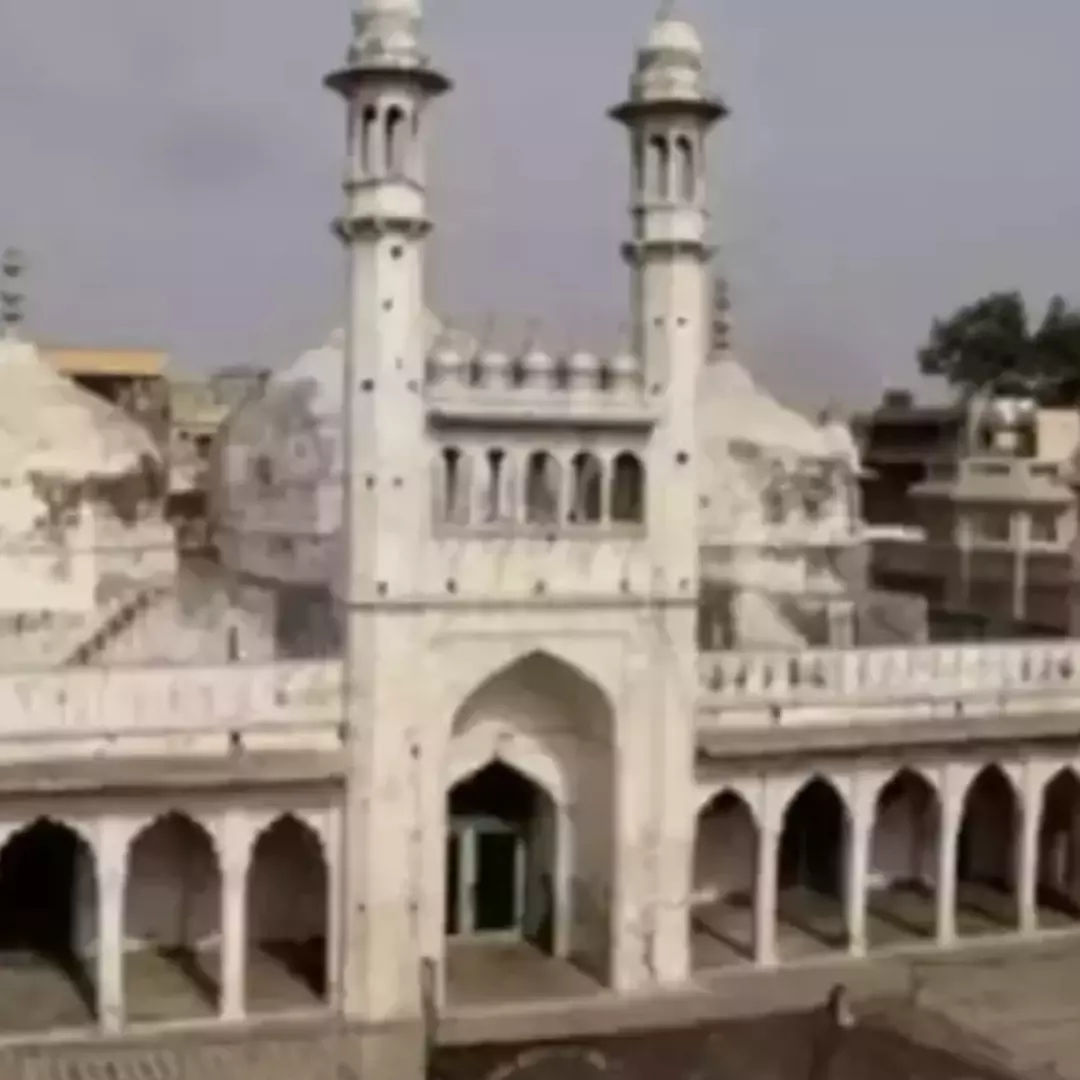The Varanasi court is set to announce its decision on Friday regarding a plea seeking a “scientific survey” of the entire Gyanvapi mosque premises by the Archaeological Survey of India (ASI). The petition, filed by the Hindu side, seeks the court’s intervention on the matter, which has been a subject of contention.
In May this year, five women filed the initial petition, seeking permission to pray at the “Shringar Gauri Sthal” inside the shrine complex. During a videographic survey conducted last year, a structure was discovered on the mosque premises, with one side claiming it to be a “Shivling” and the other side considering it a “fountain.”
Advocate Vishnu Shankar Jain, the counsel for the Hindu side, presented their argument before the court on July 14, highlighting that the matter had been submitted, and they urged for a thorough investigation by the ASI. Jain referred to the favorable judgment received from the Honourable Supreme Court on May 21, supporting their plea for the scientific survey.
Challenging the Allahabad High Court’s order, which called for the ASI to conduct a “scientific survey” involving carbon dating of the alleged “Shivling,” the Hindu petitioners filed their appeal on July 6. In their submission to the Supreme Court Registrar, they claimed that the matter had been assigned to the High Court on May 19, 2023, with the implementation of the rulings postponed until July 6, 2023, as per a report in Hindustan Times
Previously, the Supreme Court had halted the carbon dating of the “Shivling” and deferred the implementation of the Allahabad High Court’s order until the next hearing date. The High Court had allowed the “scientific survey” of the “Shivling” within the Gyanvapi complex, under the supervision and guidance of District Judge.
A bench comprising Chief Justice of India DY Chandrachud, Justices PS Narasimha, and KV Viswanathan had deferred the “scientific survey,” emphasizing the need for close scrutiny of the implications of the impugned order.
The Gyanvapi mosque management committee had filed an appeal against the High Court’s order for the ASI to conduct a scientific investigation into the age of the “Shivling.” The Centre and Uttar Pradesh government were also served notice in this regard.
Earlier on May 12, the High Court set aside the Varanasi District judge’s order, which had rejected the application for a scientific survey and carbon dating of the “Shivling” on October 14, 2022. The High Court directed the Varanasi District judge to proceed with the application by the Hindu worshippers for conducting a scientific probe of the “Shivling” in accordance with the law.
The court’s upcoming order on Friday will be crucial in determining the next course of action in the Gyanvapi mosque premises matter, as it addresses the call for a comprehensive “scientific survey” and the authenticity of the disputed structure within the sacred site.
Gyanvapi Mosque Premises Survey
It was in 1991 — a year before the Babri Masjid demolition took place — that a group of priests in Varanasi filed a petition in the court, seeking permission to worship on the Gyanvapi mosque premises. Thirty years later in 2021, the Allahabad High Court stayed proceedings in the Kashi Vishwanath Mandir-Gyanvapi Masjid case in a Varanasi court, suspending a controversial archaeological survey of the premises to determine whether a Hindu temple was partially razed to build the 17th-century mosque. The current controversy was ignited when five Hindu women knocked on the doors of the court last year, seeking to worship the Shringar Gauri and other idols within the Gyanvapi mosque complex. Current controversy: Shivling vs fountain
In April, a Varanasi court ordered a video survey of the Gyanvapi mosque complex after the petition. The report of the survey was initially ordered to be submitted by May 10. However, a delay was caused after the order was challenged by Uttar Pradesh Sunni Central Waqf Board and the mosque committee. The Gyanvapi mosque survey was concluded on May 16. The Hindu side in the matter has claimed that a ‘Shivling’ was found inside a reservoir on the mosque complex during the survey. The Muslim side, however, dismissed the claim and said it was only a ‘fountain’, reported Deccan Herald.
The Kashi Vishwanath Temple-Gyanvapi Mosque dispute was raised by the BJP, the Vishva Hindu Parishad (VHP) and the RSS during the campaign for the construction of Ram Mandir in Ayodhya along with the Krishna Janmabhoomi-Shahi Idgah Masjid in Mathura. They claimed that all three mosques were built after demolishing Hindu temples. The controversy has taken an expected turn as both the sides — Hindus and Muslims — have firmed up their stand. UP Deputy Chief Minister Keshav Prasad Maurya has said that the survey had lifted the veil on the truth. Places of Worship Act back in focus The All India Muslim Personal Law Board (AIMPLB), on the other hand, termed the court order for videography as a ‘clear violation of The Places of Worship Act, 1991 that seeks to maintain the status quo of 1947 on all places of worship. The Act has been in force since July 11, 1991.
Also Read: Karnataka CM Launches Registration For Gruha Laxmi Scheme
https://thelogicalindian.com/h-upload/2023/07/21/500x300_232646-web-9-3.webp
Trending
2023-07-21 10:42:26.0
Varanasi Court To Rule On Petition Seeking ASI Survey On Gyanvapi Mosque Area











